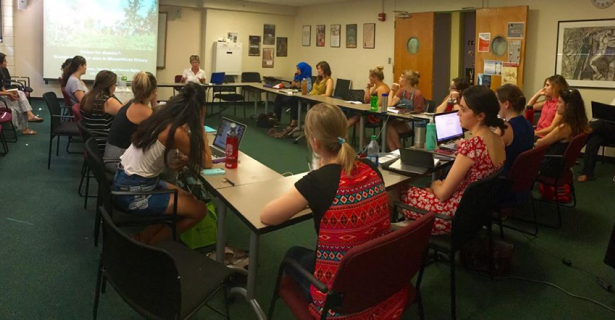The second half of my internship at the Consortium for Gender, Security, and Human Rights has been going very well. One of the highlights was a special presentation from Dr. Heidi Gengenbach on her extensive fieldwork in Mozambique on the intersections of gender, conflict, personal histories, and food security. It was very interesting to speak about the ethics of field research and listen to her explain first hand experiences of how some international aid groups have quite powerful -and not always positive- effects on local economies.
I am doing a research for an annotated bibliography on the gendered impacts and responses of environmental disasters. The literature I have been collecting highlights disasters ranging from famines in rural Bangladesh, to the tsunami in Japan, to hurricanes in the United States. Groups involved in women, peace, and security fields have not always prioritized gender and environmental security, so the consortium has been working to fill in the gaps. I was happy to begin this project after becoming familiar with topic during the ALLIES conference on civil military relations and disaster response. Gender is often overlooked in disaster management. International responders don’t often think about how gendered power hierarchies and labor division, affect venerability of certain groups of people. Additionally, feminine hygiene products have often been left out of aid provisions to effected families.
I am very thankful that I had the opportunity to work with and learn from such an amazing group of likeminded young women.

